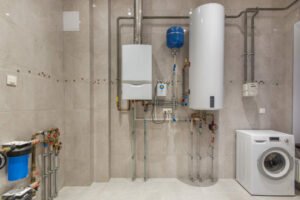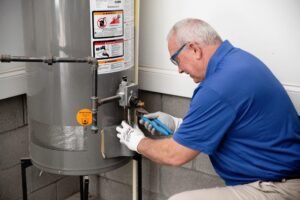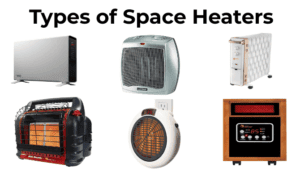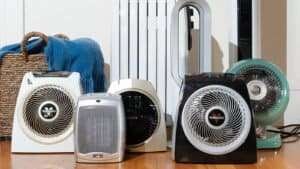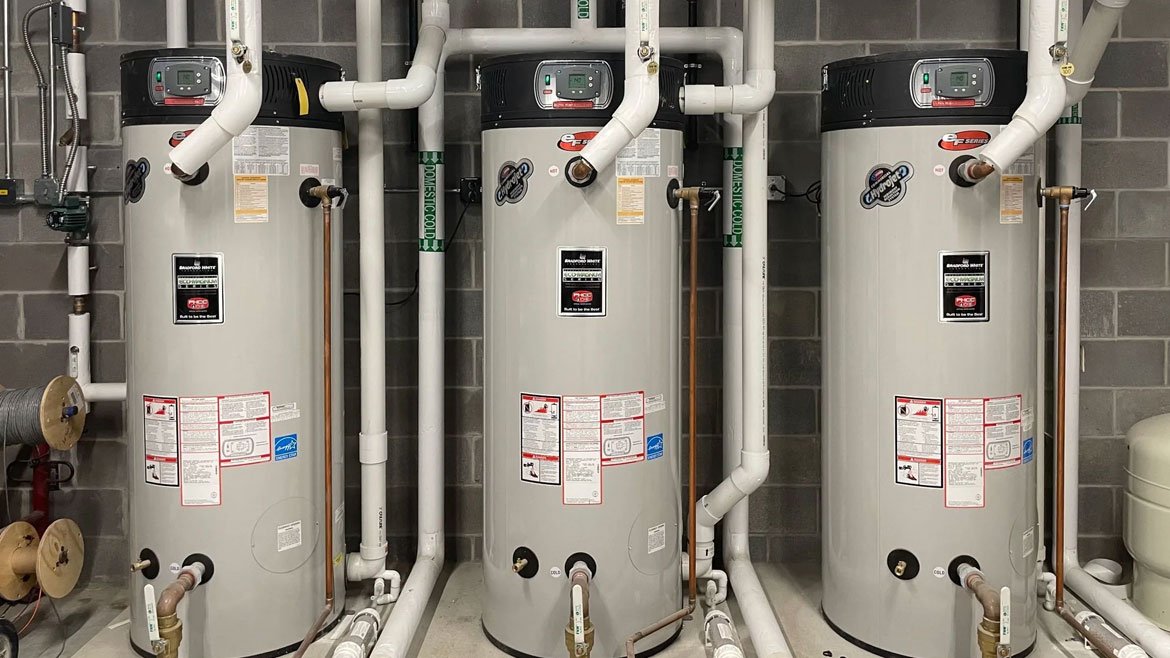
Choosing the right water heater for your home can significantly impact your comfort, energy bills, and overall efficiency. With a variety of options available, including tank, tankless, and hybrid models, understanding their differences and benefits is crucial for making an informed decision. In this article, we will compare the best water heaters of 2024, focusing on tank, tankless, and hybrid models to help you determine which type suits your needs best.
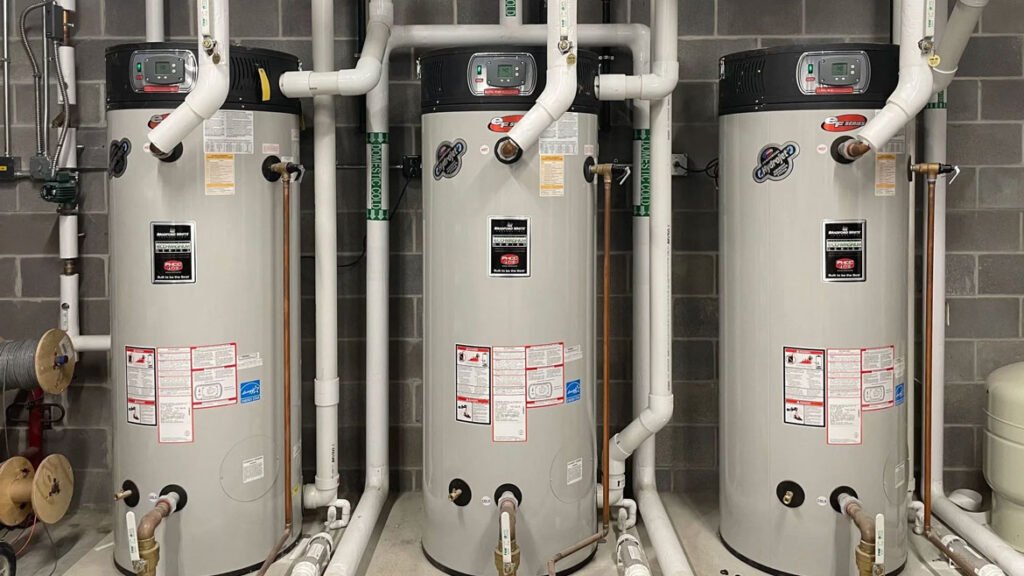
1. Tank-Type Water Heaters
Overview: Tank-type water heaters, also known as storage water heaters, are the most traditional and commonly used type. They store a large volume of hot water in a tank, ready for immediate use. These heaters are available in both electric and gas versions.
Advantages:
- Consistent Supply: They provide a constant supply of hot water, ideal for homes with high hot water demand.
- Lower Initial Cost: Tank-type heaters generally have a lower upfront cost compared to tankless models.
- Simple Installation: Installation is straightforward, with fewer requirements compared to tankless and hybrid models.
Disadvantages:
- Energy Consumption: They continuously heat and maintain a reservoir of hot water, leading to potential energy losses (standby heat loss).
- Space Requirements: Tank-type heaters require significant space for installation due to their large size.
Top Model:
- Rheem Performance Platinum 50-Gallon Electric Water Heater: With a capacity of 50 gallons and an Energy Factor (EF) of 0.92, this model offers high efficiency and ample hot water supply for medium to large households.
2. Tankless Water Heaters
Overview: Tankless water heaters, also known as on-demand heaters, heat water directly as it flows through the unit. They do not store hot water but instead provide an endless supply on-demand.
Advantages:
- Energy Efficiency: Tankless models are more energy-efficient since they only heat water when needed, eliminating standby heat loss.
- Space-Saving: Their compact size allows for installation in smaller spaces.
- Endless Hot Water: They provide a continuous supply of hot water, ideal for households with high simultaneous hot water usage.
Disadvantages:
- Higher Initial Cost: Tankless heaters typically have a higher upfront cost and may require upgrades to your electrical system or gas line.
- Flow Rate Limitations: They have a maximum flow rate, which may limit the number of outlets using hot water simultaneously.
Top Model:
- Ecosmart ECO 27 Tankless Electric Water Heater: This model features a flow rate of up to 6.5 gallons per minute (GPM) and a Uniform Energy Factor (UEF) of 0.99, providing high efficiency and ample hot water for medium to large households.
3. Hybrid Water Heaters
Overview: Hybrid water heaters, also known as heat pump water heaters, combine the features of traditional tank heaters with advanced heat pump technology. They use ambient air to heat the water, making them highly energy-efficient.
Advantages:
- High Energy Efficiency: Hybrid models offer exceptional efficiency with an Energy Factor (EF) as high as 3.55, leading to significant energy savings.
- Reduced Operating Costs: Lower energy consumption translates to reduced utility bills over time.
- Large Capacity: They often come with larger tank capacities, making them suitable for high-demand households.
Disadvantages:
- Higher Initial Investment: The upfront cost of hybrid water heaters can be higher compared to tank and basic tankless models.
- Space Requirements: Hybrid models require adequate space for installation due to their heat pump components.
Top Model:
- Rheem Performance Platinum Hybrid Electric Water Heater: With a capacity of 50 gallons and an impressive UEF of 3.55, this model offers superior energy efficiency and a large capacity, making it ideal for larger households.
4. Comparison and Considerations
Energy Efficiency:
- Tank-Type: Generally less efficient due to standby heat loss, but advancements in insulation have improved some models.
- Tankless: Highly efficient with no standby heat loss, though flow rate limitations should be considered.
- Hybrid: The most energy-efficient option with significant savings on utility bills, thanks to its use of heat pump technology.
Cost:
- Tank-Type: Lower initial cost, but higher long-term operating costs due to energy consumption.
- Tankless: Higher upfront cost, but potential for lower energy bills and longer lifespan.
- Hybrid: Higher initial cost, but the best long-term savings due to high efficiency and reduced energy consumption.
Space Requirements:
- Tank-Type: Requires more space for the tank.
- Tankless: Compact and can be installed in smaller spaces.
- Hybrid: Requires more space for the heat pump components but is still relatively compact compared to tank-type heaters.
Hot Water Demand:
- Tank-Type: Suitable for households with consistent, high hot water demand.
- Tankless: Ideal for households with moderate to high simultaneous hot water needs but consider flow rate limitations.
- Hybrid: Great for households with high hot water usage, offering a balance of efficiency and capacity.
5. Conclusion
Choosing the best water heater for your home in 2024 involves evaluating various factors, including energy efficiency, cost, space requirements, and hot water demand. Tank-type heaters offer reliability and lower initial costs, making them suitable for households with stable hot water needs. Tankless heaters provide energy savings and endless hot water but come with higher upfront costs and flow rate limitations. Hybrid models combine high efficiency with large capacity, offering the best long-term savings but requiring a higher initial investment and space for installation.
By carefully considering these aspects and assessing your household’s specific needs, you can select the water heater that best fits your requirements, ensuring reliable performance and efficiency for years to come.
